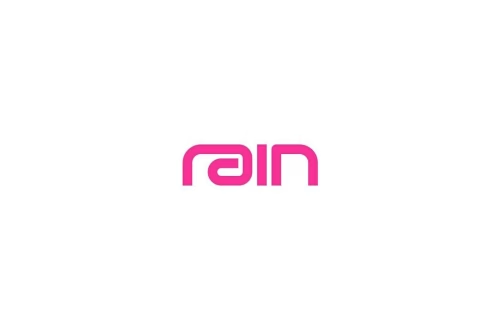what are zero-knowledge proofs in blockchain
Summary:
Zero-knowledge proofs (ZKPs) are cryptographic protocols used in blockchain technology that allow one party to prove the validity of a statement to another party without revealing any underlying data. They enhance privacy, security, and scalability in blockchain networks by enabling transactions to be verified without disclosing sensitive details. ZKPs are crucial for applications requiring confidentiality, such as decentralized finance (DeFi), anonymous cryptocurrencies like Zcash, and identity verification systems. Understanding zero-knowledge proofs empowers blockchain users to engage with privacy-focused platforms securely and efficiently.
What This Means for You:
- Enhanced Privacy: Zero-knowledge proofs enable confidential transactions, protecting your financial details from public exposure on the blockchain. This is particularly useful for privacy-conscious users.
- Better Security: With ZKPs, cryptographic verification can be done without sharing sensitive data, reducing risks of fraud or hacking attempts.
- Scalability Improvements: ZKPs help reduce computational overhead, improving blockchain efficiency—especially useful for networks like Ethereum facing congestion issues.
- Future Outlook or Warning: While ZKPs offer immense benefits, their complexity means improper implementation could lead to vulnerabilities. Staying informed about advancements is key.
Explained: what are zero-knowledge proofs in blockchain
Introduction to Zero-Knowledge Proofs
Zero-knowledge proofs (ZKPs) are cryptographic methods allowing one party (the prover) to demonstrate knowledge of a piece of information without revealing the information itself (the verifier). Introduced by MIT researchers Shafi Goldwasser, Silvio Micali, and Charles Rackoff in 1985, ZKPs have evolved into essential tools for blockchain applications.
How Zero-Knowledge Proofs Work in Blockchain
In blockchain, ZKPs verify transactions without exposing sender, recipient, or amount details. Common types include:
- zk-SNARKs (Zero-Knowledge Succinct Non-Interactive Argument of Knowledge): Used in Zcash for private transactions.
- zk-STARKs (Zero-Knowledge Scalable Transparent Arguments of Knowledge): More transparent and quantum-resistant than zk-SNARKs.
- Bulletproofs: Efficient for confidential transactions, minimizing computational costs.
Use Cases in Blockchain
ZKPs enable:
- Private Transactions: Cryptocurrencies like Zcash use ZKPs to conceal transaction data.
- Identity Verification: Decentralized identity solutions (e.g., DID) allow users to prove identity without disclosing personal info.
- Scalable Layer-2 Solutions: Rollups (Optimistic & zkRollups) use ZKPs to bundle transactions efficiently.
- DeFi Privacy: Platforms use ZKPs for confidential lending, borrowing, and trading.
Strengths and Limitations
Strengths:
- Privacy-preserving verification
- Reduced blockchain congestion
- Enhanced security against replay attacks
Limitations:
- High computational requirements
- Complex implementations
- Potential vulnerabilities if incorrectly applied
The Future of ZKPs
ZKPs will play a pivotal role in Ethereum’s upgrades, privacy coins, and enterprise blockchain solutions. However, regulatory scrutiny may increase as governments balance privacy against anti-money laundering concerns.
People Also Ask About:
- Why are zero-knowledge proofs important?
ZKPs are crucial because they allow secure, private verification of transactions without revealing unnecessary data—protecting financial privacy and reducing fraud risks. - What is the difference between zk-SNARKs and zk-STARKs?
zk-SNARKs require a trusted setup process and are smaller in proof size, whereas zk-STARKs are quantum-resistant, transparent, and scalable but generate larger proofs. - Which cryptocurrencies use zero-knowledge proofs?
Zcash pioneered ZKPs in blockchain, while Ethereum integrates them via zkRollups for scaling. Other projects like Aleo and Mina Protocol also utilize ZKPs. - Are zero-knowledge proofs unbreakable?
No cryptographic method is entirely unbreakable. While ZKPs are highly secure, flawed implementations or advances in quantum computing pose future risks.
Expert Opinion:
Zero-knowledge proofs represent one of the most transformative cryptographic innovations in blockchain today. However, their adoption must balance privacy with compliance requirements. Developers should prioritize audits and standardized implementations to prevent exploits. As ZKP research accelerates, expect broader integration across DeFi, identity management, and Web3 applications.
Extra Information:
- Zcash zk-SNARKs Guide – A technical deep dive into how Zcash implements zero-knowledge proofs.
- Ethereum zk-Rollups – Explains how Ethereum uses ZKPs for layer-2 scaling solutions.
Related Key Terms:
- zk-SNARKs vs zk-STARKs comparison
- zero-knowledge proofs Ethereum scalability
- how do zero-knowledge proofs enhance blockchain privacy
- best cryptocurrencies using zero-knowledge proofs
- zero-knowledge proof applications in decentralized identity
#ZeroKnowledge #Proofs #Blockchain #Complete #Guide
Featured image generated by Dall-E 3





